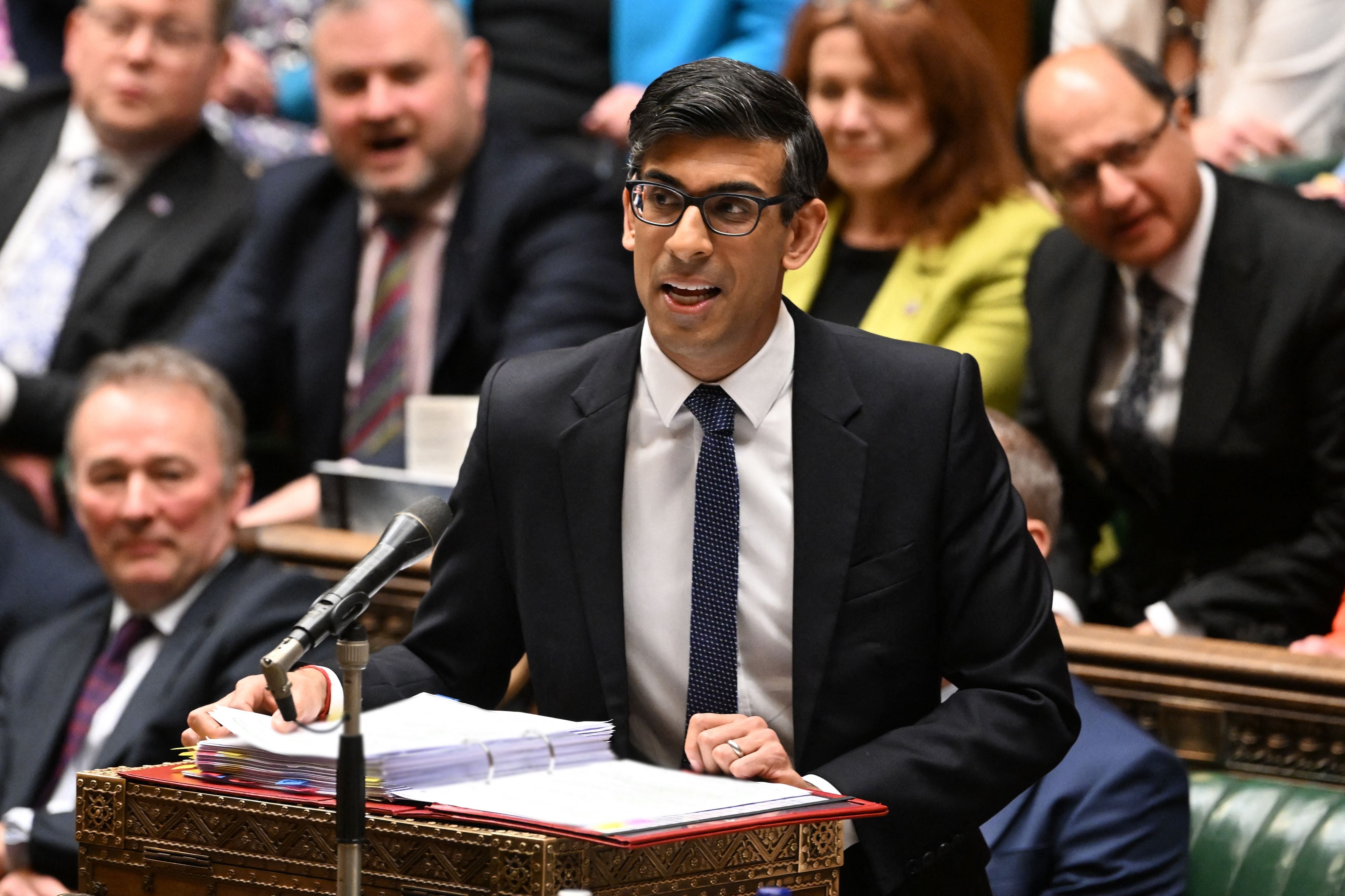Humiliating relegation to third place should serve as a stark warning for the Tory party
Editorial: In short, the remarkable electoral coalition assembled by Boris Johnson – red wall and blue wall – in 2019 seems lost

It may be only one opinion, and one piece of modelling using the UK’s capricious parliamentary voting system, but the possibility that the Conservatives could come third to Labour and the SNP at the next election is a sobering one. “Just a bit of fun,” as Peter Snow said today, though the Tory High Command won’t be smiling.
In fairness to the pollsters Find Out Now and Electoral Calculus – who crunched these terrifying (for Conservatives) figures – the sample size was an unusually large one, and the 26-point Labour lead was in line with a range of recent opinion polling trends.
It does not, in other words, appear to be a rogue reading of the national mood; and government sources aren’t wasting their time in trying to deny the obvious. They are in deep trouble. It takes a leap of imagination to see constituencies in the comfortable shires turning “socialist” and some 15 cabinet ministers out of the Commons, but that is also how things felt before the New Labour landslide of 1997.
Such is the febrile atmosphere right now that it is possible that the scale of Tory defeat would be even greater today. To go from the majority of 80 won at the 2019 election to not even commanding the opposition front bench would be an unprecedented fall for the Tories; but there’s a first time for everything. If tactical voting, especially by Labour voters, takes off then the prospects for a Liberal Democrat revival and even greater humiliation for the Tories beckons.
All that said, there are reasons for the Conservatives to have some hope of improvement, unlikely as it may seem now. The election is about 18 months away – we know this because it is the new Tory chair Greg Hands’s first slip of the tongue – and therefore there is some time for things to change.
If there are no further external economic shocks, such as the worsening of the war in Ukraine or an interruption to oil supplies from Iran, then inflation will gradually subside by about one percentage point per month until the autumn – meeting Rishi Sunak’s target of halving the rate. Prices will still be much higher than they were in 2021 but the pace of increase will have slowed. Similarly, the sharp hikes in interest rates should slow, and the Bank rate may now be at, or near, its peak. The recession should be over and the economy will return to snail-like expansion, nominally fulfilling another of Mr Sunak’s promises.
Modest, symbolic tax cuts may also make the voters feel better in the spring of 2024 – with the promise of more to follow a (still improbable) Tory victory. Throw in some advantageous boundary adjustments, voter volatility, a lack of passion towards Keir Starmer and the fact that, historically, even the most hopeless governments tend to pick up support as polling day approaches, and an optimistically-minded Tory might start to think things might not be as bad as they are now. The next Tory leader might get to be leader of the opposition after all (reportedly Liz Truss’s current ambition).
Victory, however, the fifth in a row, a second term for Mr Sunak and Tory rule stretching to almost the 2030s also feels unrealistic. The feeling of “time for a change” can be a powerful one, a lethal point where the voters stop listening, and provided the main opposition doesn’t terrify the electorate, a loss of power by any governing party is then near-inevitable.
In short, the remarkable electoral coalition assembled by Boris Johnson – red wall and blue wall – in 2019 seems lost, even with the hypothetical possibility of Mr Johnson staging a comeback. Brexit and the leadership of Jeremy Corbyn were the key factors in securing that historic victory, and both will be absent or acting against the Conservatives next time around. “Sleaze” has added to the disillusionment.
The voters do not, on the whole, believe that leaving the EU has delivered the benefits that Mr Johnson and the Conservatives indicated. It’s possible that the “straight-talking” new Tory deputy chair, Lee Anderson, may persuade socially conservative ex-Labour voters to stick with Mr Sunak; but his reactionary views about hanging and crude ways will repel many more moderate Tories that their party has moved far away from their values.
Labour has good reason not to be complacent, though, because the electoral geography of Britain retains a built-in bias towards the Tories that’s been disguised by their present dismal ratings. Now they need to look, sound and act like a government in waiting. They’re not there yet.



Join our commenting forum
Join thought-provoking conversations, follow other Independent readers and see their replies
Comments